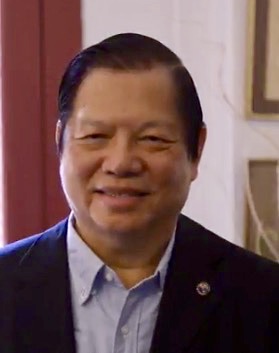Understanding your calling: A reflection on work and culture
Georgie Lee // January 27, 2019, 5:07 pm

Photo by Austin Distel on Unsplash.
As I was walking out of a church building, suddenly a voice from behind me bellowed, “Georgie, when are you going to retire and go into full time service in the church?”
I turned around; it was a pastor whom I have known for many years.
Taken by surprise, I quickly gathered my thoughts and retorted half in jest: “Pastor, I am already serving full time in the marketplace. I am a priest as much as you are a priest. Don’t we believe in the priesthood of all believers? You are called to equip the saints. I am called to reach out to businessmen and workers in the marketplace.
Our faith has everything to do with how we live and carry out day-to-day activities.
“I am frequently out there in a hostile ocean infested by tiger sharks and ‘loan’ sharks! I am there to be a fisher of men in the marketplace. They come to me because they have a need – to seek solutions to their business and financial problems.
“God has placed me there to meet not just their financial need, but their greater needs. They include all issues of life including personal problems. This avails me the opportunity to share my testimony about the goodness of God in leading me out of similar problems. They receive the full counsel of God, not just financial counsel.”
The pastor is not alone in making these remarks.
Many believers similarly do not see their “secular” vocation as serving God. Their response reflects a commonly held secular-sacred dichotomy in how they view what they do.
The dualistic worldview has its origins in Greek philosophy, from which much of today’s worldview are derived.
For those who hold a Biblical worldview, the process of integration of faith and work must involve the deliberate and conscious effort to allow our faith to permeate and transform the way we think, the way we see the world, how we interpret reality and how we conduct our lives. It has to be a Kingdom perspective of God’s world, and His order and standard for things and for our lives.
In short, our thinking, our attitudes, and our behavioural patterns must be informed and transformed by Biblical Christianity which is radical in its demands.
To compartmentalise our life is to deny the lordship of Christ over every area of life.
Integration should enable us to relate our faith to life; building connections between everything we do in the home, workplace, community and nation.
We cannot compartmentalise life by putting, for example, the way we behave at work in one box, and the way we carry out “spiritual” disciplines, such as prayer, fasting, Bible studies, life in church, and so forth, in another box.
To do this is to fall into the trap of dualism, where we deny the lordship of Christ over every area of life.
Dualism is alien to the unity of God’s truth. It is a false dichotomy to try to compartmentalise faith and work.
Faith should not be separate and private. Our faith has everything to do with how we live and carry out day-to-day activities. Every aspect of life must come under the sovereign rule of God. We must live ‘coram Deo’ (live daily in the presence of God or before the face of God).
How do we see our vocation?
The word “vocation” from its Latin origin refers to the call of God.
However, believers often equate answering the call of God with being a full-time pastor, missionary, evangelist or church worker.
There is an unspoken hierarchy of calling.
Clerical vocations like pastors and evangelists represent the highest calling and are highly valued because they are “spiritual” vocations.
Next would be those working in Christian or charitable organisations or those involved in the ministry of “helps” or service like educationists, doctors, medical and social work professionals.
Everyone has a role in God’s grand design. Therefore, no one’s work is more important than another’s.
At the lowest level would be those in “secular” vocations like businessmen, executives, salespeople and factory workers. Though lowly ranked, they can however, find redemption in what they do when they render financial support to the church or missionary organisation.
Some thus see their calling in holding a “secular job” as providing financial support to the church. Their so-called secular employment gains legitimacy when they give money to the church.
As the Lausanne Committee paper on Marketplace Ministry commented: “Clericalisation produced the ‘taming of the pew.’ Lay people were to pay, pray, and obey.”
Those desiring to serve God, therefore, feel impelled to move up the hierarchy. And this often means leaving their “secular” jobs to take up full-time church or missionary work.
In the New Testament church, all believers are empowered to be prophets, priests and kings and this, therefore, is antithesis to the clergy-laity dichotomy. No sooner were the people of God liberated at Pentecost than the early church fathers disempowered them through a reversion to Old Testament, and the pagan sacred and secular models of clerical leadership.
Exacerbating this erroneous concept is the monastic teachings of the early church which encouraged believers to withdraw from a tainted and contaminated world.
The biblical model is that of a body of Christ with multiple parts, and not a hierarchical ladder or pyramid with the clergy at its apex. God has given believers various giftings to fulfil His calling for us to be His co-creators in the work of bringing His creation to fulfilment. He expects us to be involved in all kinds of creative work to fulfil His plans for His kingdom. Everyone has a calling and a role in God’s grand design and, therefore, no one’s work is more important than another’s.
This article was first published by The Fire Report: FGB Gatekeepers Singapore and is republished with permission. You can read the second part of the article here.
We are an independent, non-profit organisation that relies on the generosity of our readers, such as yourself, to continue serving the kingdom. Every dollar donated goes directly back into our editorial coverage.
Would you consider partnering with us in our kingdom work by supporting us financially, either as a one-off donation, or a recurring pledge?
Support Salt&Light



